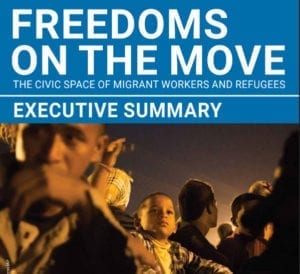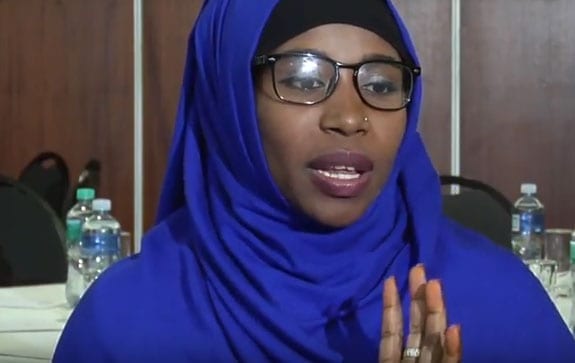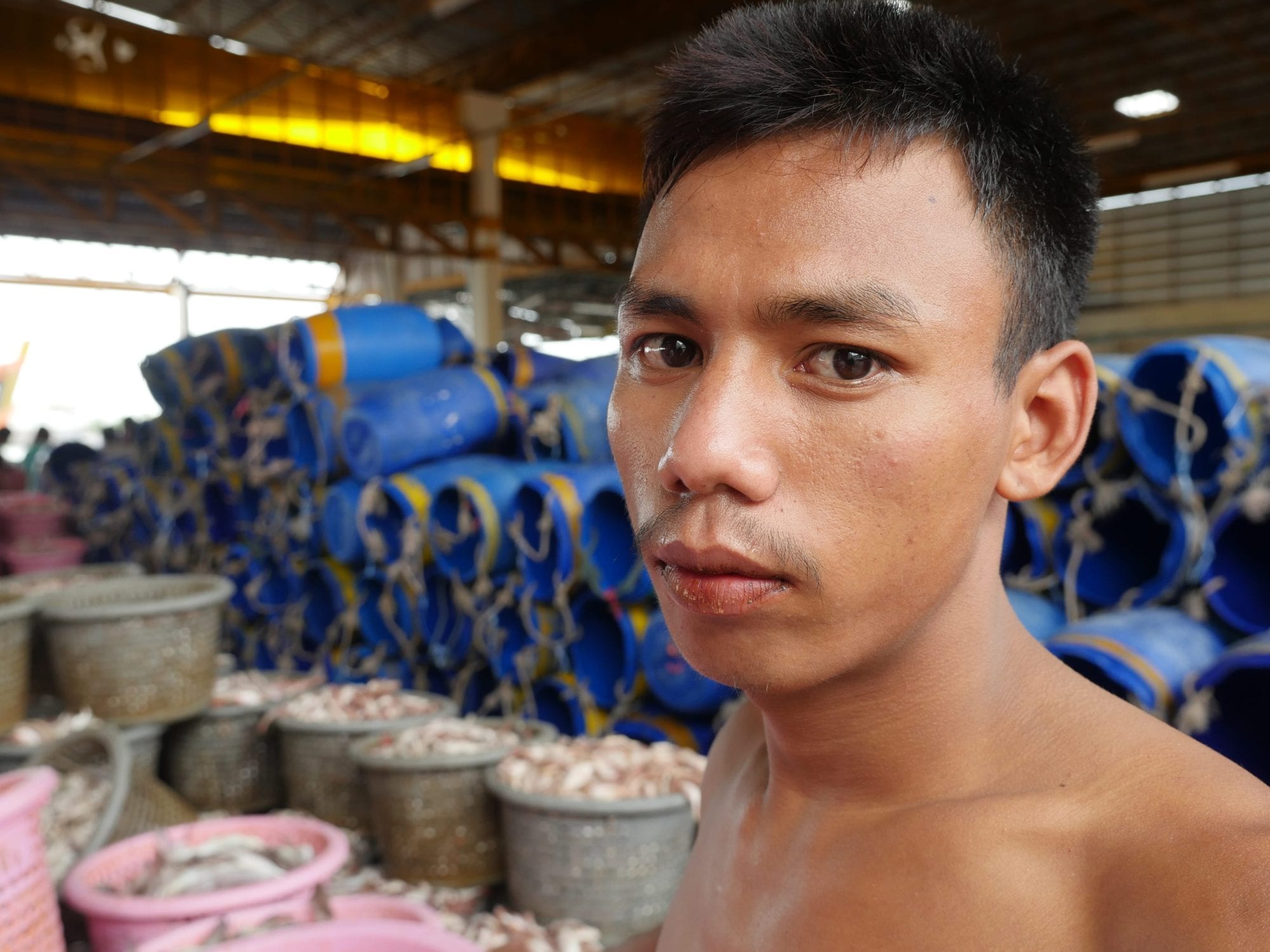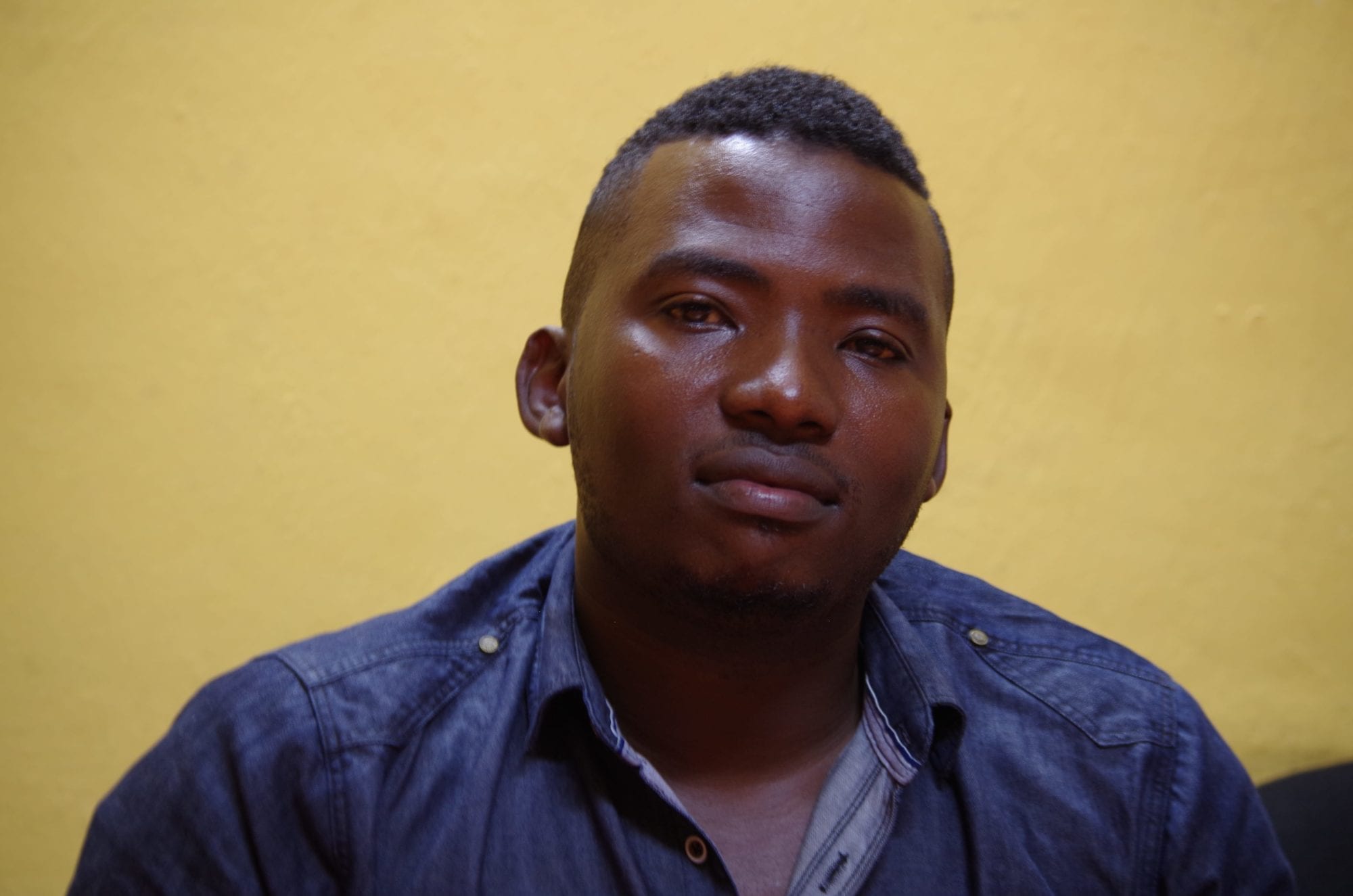When Fauzia Muthoni arrived in Qatar from Kenya to work as a receptionist and earn money to support her family, the labor agent traveling with her informed Muthoni the job was in Saudi Arabia and escorted her to another plane. She tried calling her family, but...
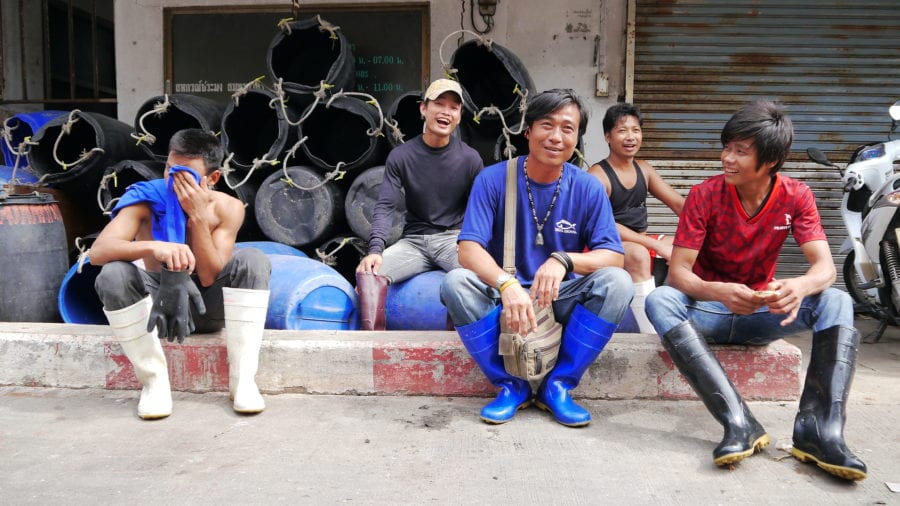
The Solidarity Center strives for rights for people on the move by ensuring migrant workers are fully able to exercise their workplace, social, economic and democratic rights. Solidarity Center/Jeanne Hallacy
Labor migration feeds the global economy. Hundreds of millions of migrant workers worldwide generate billions of dollars in global remittances. They are domestic workers, construction and agricultural workers, factory and service workers, teachers and professionals. Migrant workers often travel long distances due to a lack of decent work at home to support their families and build a better life. They frequently are denied the most basic human rights. For instance, most destination countries deny migrant workers the right to form unions, and explicitly exclude them from labor law protections, and women migrant workers are often subject to gender-based violence and harassment in their workplaces.
The Solidarity Center strives for worker rights for people on the move by ensuring migrant worker rights are a key part of the labor movement. We cultivate an understanding of how exploitative labor migration management schemes are a widespread means by which to undercut worker wages, create precarious work and pit workers against each other. And, in addressing these structural ills, we emphasize a response that understands the intersectionalities and identities that make migrant workers especially vulnerable. Our goal is to ensure that migrant workers are fully able to exercise their workplace rights, as well as their social, economic and democratic rights.
We also focus on the creation of decent work in home countries so workers can migrate by choice and not due to economic coercion. We recognize that migration is not caused by a single factor that “pushes” workers to migrate. In doing so, we bring our unique worker rights voice more broadly by emphasizing that everyone deserves dignity at work regardless of status—climate migrants, economic migrants and conflict refugees. We work to achieve this through programs that focus on union organizing and collective bargaining, policy advocacy, access to justice, safe migration and, more broadly, the ability to exercise fundamental freedoms as democratic participants.
Find out more
- A Pandemic Reset for Migrant Workers, Neha Misra and Shannon Lederer
- How COVID-19 Affects Women in Migration, Carolina Gottardo and Paola Cyment
Freedoms on the Move, a 2019 report by Solidarity Center and CIVICUS, is an urgent call to action for unions and other civil society groups to include migrant workers and refugees in advancing civic rights.
In Thailand, Burmese Migrant Workers Toil Without Rights
An estimated 200,000 Burmese migrants fuel Thailand’s huge fishing industry in Samut Sakhon province, an hour outside of Bangkok. The majority of workers are ethnic Mon from farming villages in southern Burma and they send their salaries to their families back home....
Cheated of Good Job, Kenyan Warns Migrant Workers
In Mombasa, Kenya, a labor broker offered Frank Wetindi a job in Dubai as a driver. Wetindi went into debt to pay the broker, but was given a job unloading planes in brutal heat, for a salary far less than he was promised. Living with eight men crammed in one room,...
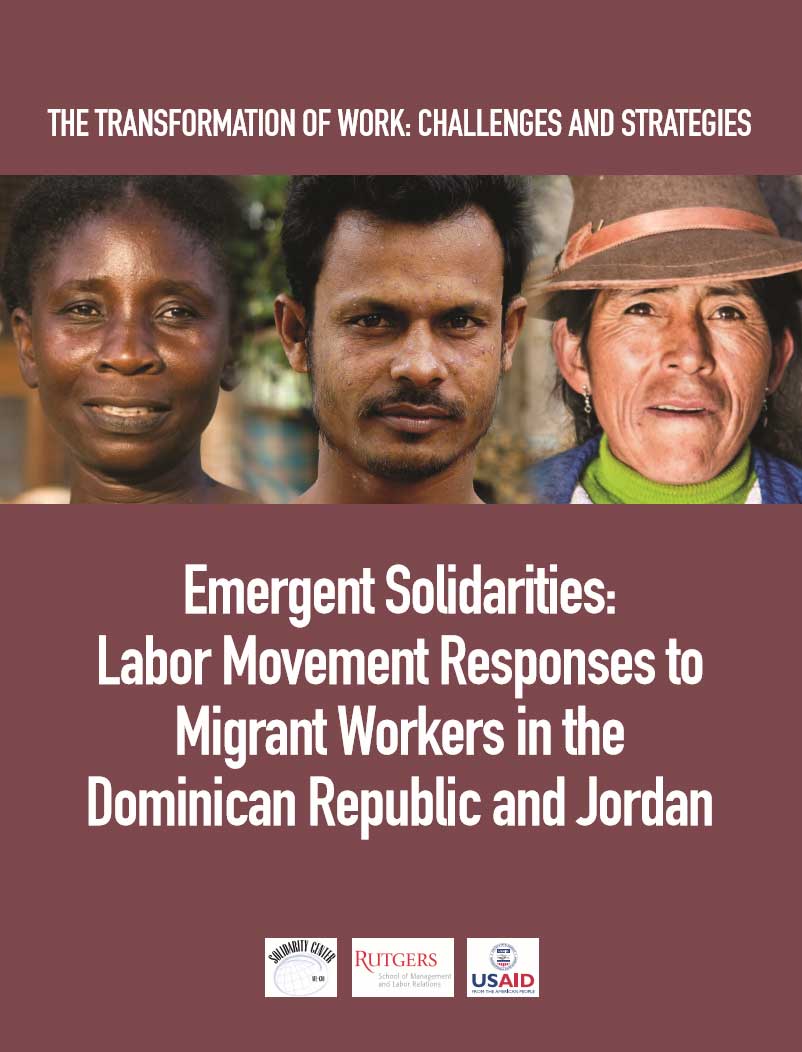
Emergent Solidarities: Labor Movement Responses to Migrant Workers in the Dominican Republic and Jordan (Rutgers, 2013)
This report explores examples of unions making significant change in their approaches to migrant worker organizing and how the Solidarity Center has played a role in shifting union thinking about migrant workers and supporting union engagement and activities. Part one...
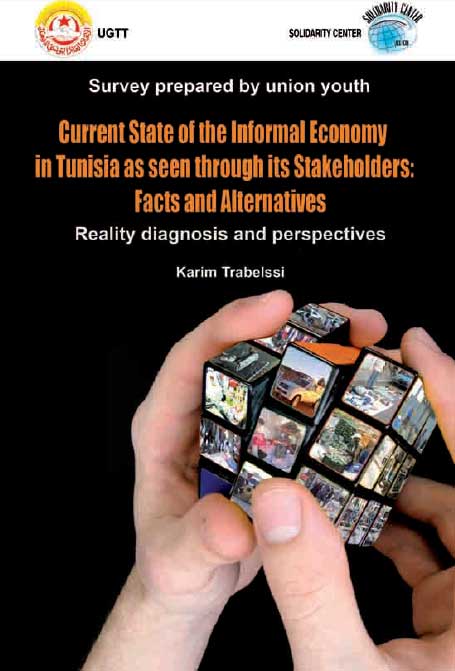
Current State of the Informal Economy in Tunisia as Seen through Its Stakeholders: Facts and Alternatives (June 2014)
A new Solidarity Center study takes a close look at the factors fueling the massive growth of Tunisia’s informal economy, and recommends actions to help shift workers in the precarious informal sector to jobs with health coverage and other social benefits. Download...
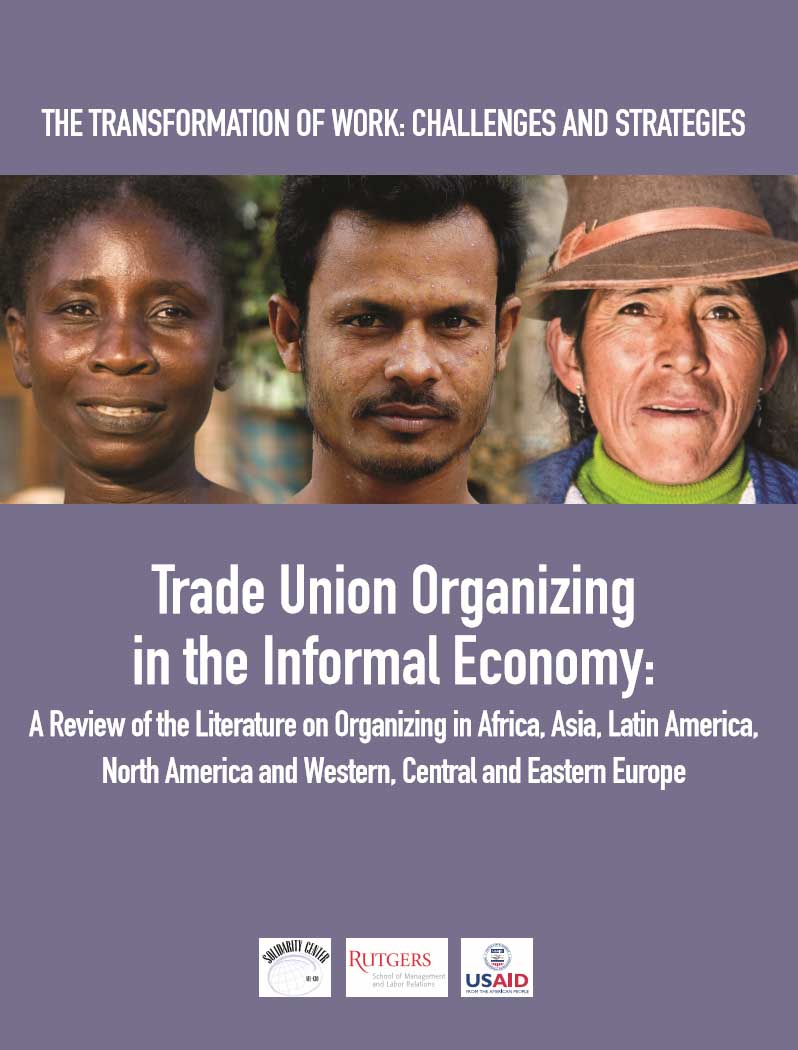
Trade Union Organizing in the Informal Economy: A Review of the Literature on Organizing in Africa, Asia, Latin America, North America and Western, Central and Eastern Europe (Rutgers, 2013)
This report reviews the literature of efforts throughout the globe by workers who labor outside the formal labor economy of their countries to form or join trade unions as well as unions’ efforts to organize and represent them. This Solidarity Center report is part of...
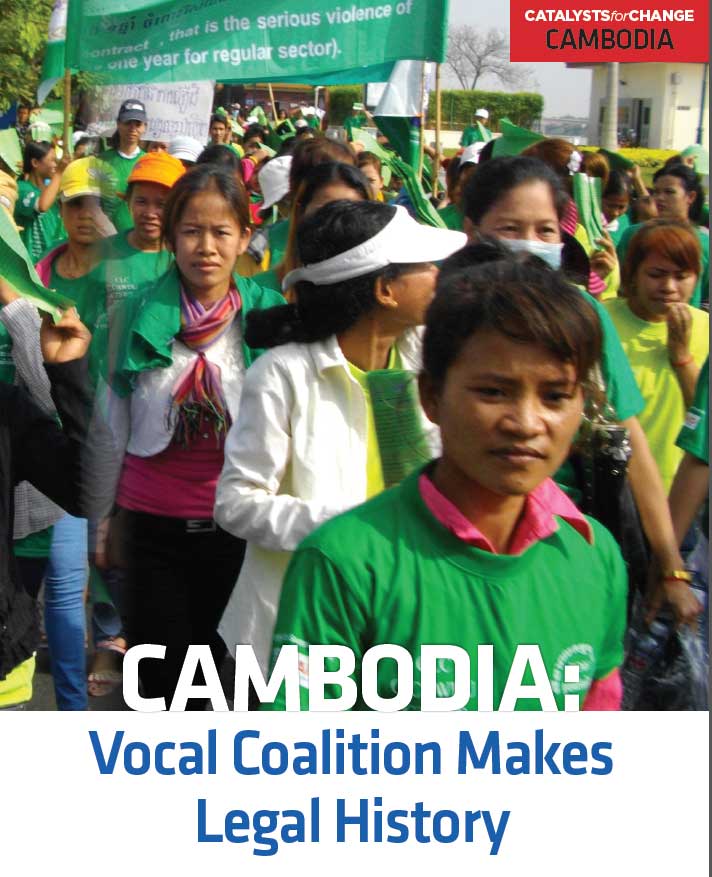
CAMBODIA: Vocal Coalition Makes Legal History (2013)
Cambodia’s nascent independent labor movement and human rights organizations worked to revise a labor law proposed in 2011 that would have significantly rolled back worker rights—and a Solidarity Center report describes how they did it. English (PDF) Arabic (PDF)...
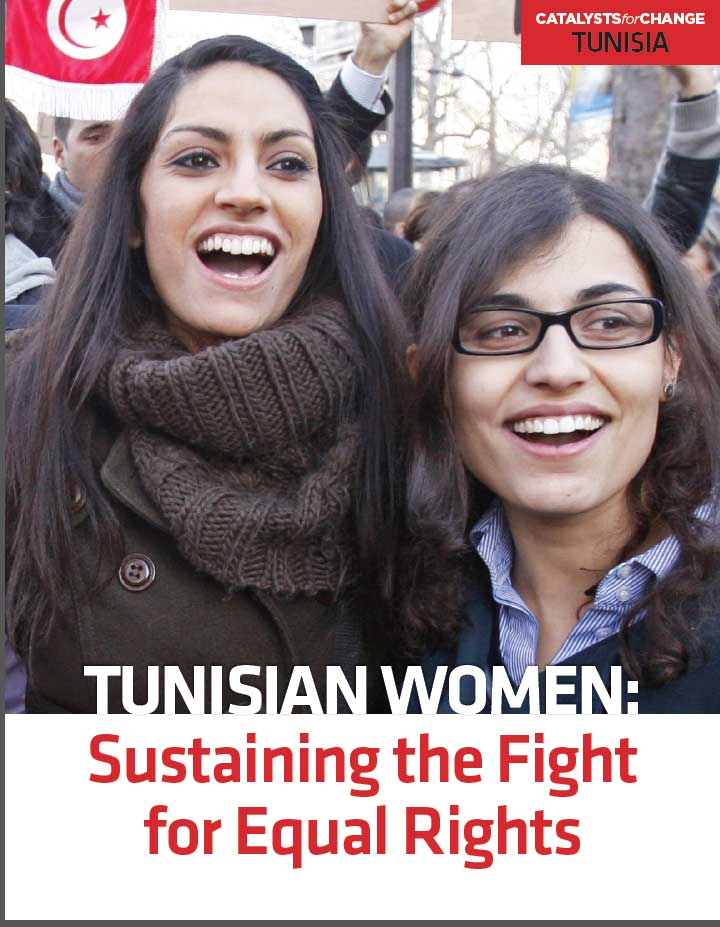
TUNISIAN WOMEN: Sustaining the Fight for Equal Rights (2013)
In 2011, Tunisian women helped spur protests and end autocratic regimes in Tunisia and throughout the Arabic-speaking world. Today, a Solidarity Center report finds Tunisian women remain in the forefront of ensuring democratic change in their country during the...
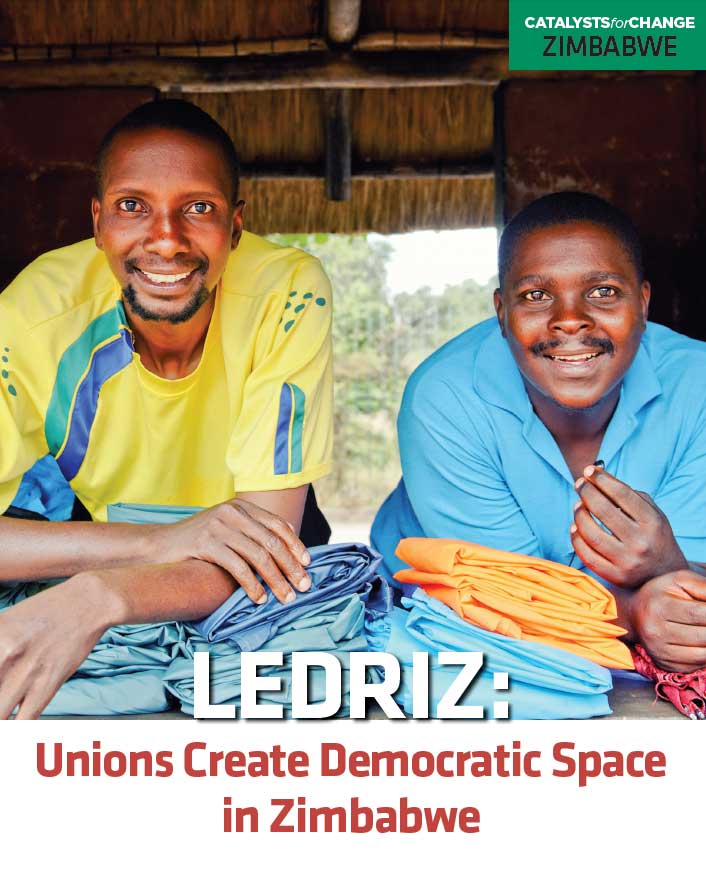
Unions Create Democratic Space in Zimbabwe (2013)
Unions in Zimbabwe are ensuring the concerns of working people are heard—while highlighting issues feeding into the nation's poverty crisis, a Solidarity Center report finds. English (PDF) Arabic (PDF) French (PDF) Spanish (PDF) Sources

